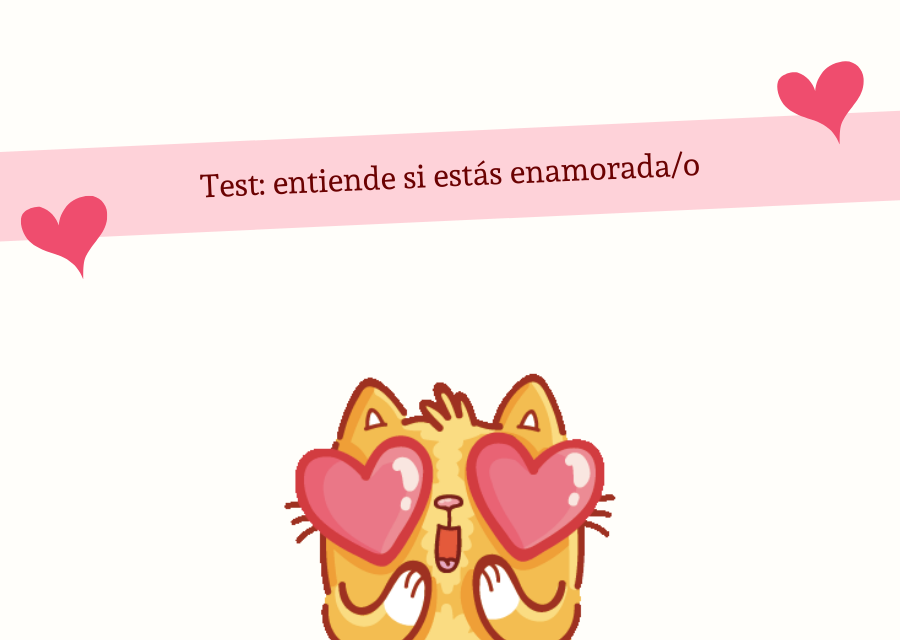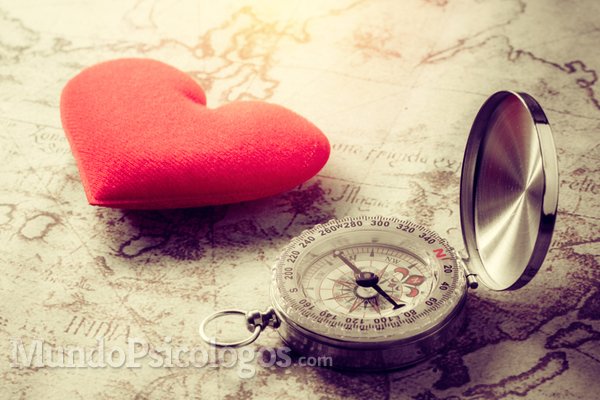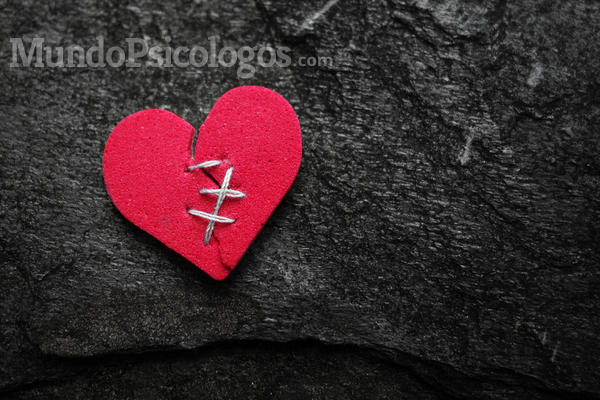We analyze the magic that surrounds love trying to answer three questions: are love and falling in love the same thing? Is the heart the organ of emotions? Is love just chemistry?
Why do we feel what we feel? Why can’t we get that person we just met out of our minds? How does it arise the act of falling in love ?
These reactions, which we have heard more than once, are completely normal in love and, furthermore, have been scientifically proven. Anthropology, neurobiology, chemistry, and even psychology and psychiatry explain why we feel what we feel and how love evolves. In this way you can talk about both symptoms of falling in love like the different phases of love that we can feel.
“We begin to love when we stop being in love.”
Eric Fromm
We are going to scientifically analyze all that “Magic” that surrounds the falling in love in psychology trying, briefly, to answer three questions: are love and falling in love the same thing? Is the heart the organ of emotions, or is it the brain? And is love just chemistry?
What is falling in love?
The definition of falling in love According to the dictionary, it is defined as those strong feelings of love or attraction for someone or something, in an unreasonable way and that do not usually last too long. In this way, being in love or falling in love itself does not last long. What determines falling in love in psychology is not only its short duration but also the symptoms of love that are usually assimilated to an obsessive thought.
When we say that someone is in love, we often think that this has a direct relationship with love. But even though he infatuation and love They may suffer from the same thing, the reality is that they are two completely different feelings. We could say that falling in love is one of the phases of love that happens at the beginning and that must disappear with the course and evolution of the relationship.
Symptoms of falling in love
There are some signs of falling in love very defined that can indicate that you are in these first phases of love. According to the psychology of love, falling in love has the following symptoms:
1. Idealism
In the act of falling in love , your lover is the perfect person for you in every way. So much so that even though you see the other’s flaws, it is very likely that you justify them towards a good attitude.
2. Nervousness
To the people fall in love They feel restless and nervous every time they have to interact with their loved one or expect something from them (like a message). In this way, one of the symptoms of falling in love is this uneasiness that arises from the desire to be reciprocated.
3. You flirt
When a person is in love She can’t stop trying to give her best version of herself. So much so that it is very possible that you see yourself having certain attitudes that you would never have imagined.
4. You feel too much
One of the symptoms of being in love The most detectable is precisely the speed at which all your feelings advance. In this way, you feel that this is really the person in your life, a thought that does not have to be reality. Falling in love in men and women is usually similar in this symptom.
5. You are not yourself
During the falling in love people They may experience a certain strangeness in most of the attitudes they carry out. So much so that on most occasions they will see themselves behaving in a very different way from what they expect of themselves.
6. Lust dominates the relationship
During the act of falling in love , people feel that lust dominates the relationship in many ways. So much so that normally when falling in love the relationship focuses a lot on sex.
7. Everything seems perfect to you
On many occasions the people in love They tend to think that everything that is happening in the relationship (even though it is not love) is completely perfect. In this way, certain stories will even be reinterpreted to imagine that ideal love really exists.
If you are experiencing all of these symptoms of falling in love it is very likely that you are in this phase of love.

Why is falling in love related to the heart?
Since ancient times, specifically in Egyptian culture, writings and documents have been found that were based on the idea that the seat of the soul resided in the body. in the heart This organ, associated with life and death (even with values and lifestyle in expressions such as “men of pure heart”), was considered the axis of the human intellect and its emotions, and is known in the history of philosophy. , psychology and neurology to this theory as cardiocentrism.
The other position, which maintains that the brain is the organ of our intellect, psyche or soul, (although they are different concepts, they are often used synonymously) is called cephalocentrism, and is postulated for the first time in history by Alcmeón de Crotona and Hippocrates (IV-V BC), fathers of current medicine and origin of the famous “Hippocratic Oath” that doctors do. Nobody doubts today that brain and neurological alterations can produce, depending on their severity and location, different mental and behavioral alterations, which is why it is more than scientifically proven that the brain is the seat of intellect. However, outside of scientific and academic circles, at a popular level, many people operate with a dualistic belief that one thing is intellect, “the intellectual”, “the rational”and this is found in the brain, and another thing is “the emotional”, “the passionate” and this, as it is felt with the heart, well… it is found in it.
Even Pascal, French mathematician, physicist, Christian philosopher and writer of the mid-20th century, wrote the phrase that has gone down in history “the heart has reasons that reason does not understand“. Where does this idea come from?
It was Plato, the undisputed basis of Western philosophy and with more influence on Christianity than many people think, who spoke not of one soul, but of three, a rational soul, an irascible soul and a concupiscible soul.
In the myth of the winged chariot, Plato represents the rational soul with the metaphor of the charioteer (person who drives a cart pulled by two horses or biga). It is the most excellent part of the soul, it is identified with reason, knowledge and the realization of good and justice. It is a divine principle and endowed with immortality. It places it in the head (the brain).
In that same myth he represents the irascible soul with the metaphor of good horse and docile to the charioteer’s instructions. In the irascible soul there is will, courage and strength. He places it in the chest (the heart).
Plato represents the concupiscible soul with the metaphor of the bad horse, not very docile and that directs the cart towards the sensible world. It is the part of the human soul most related to the body, sensitive pleasures and appetites or desires (sexual desires, appetites for food, etc.). Unlike the rational soul, this one is mortal. He places it in the abdomen and lower abdomen.
Thus, our culture, tremendously influenced by Plato and Christianity, has reached our days with this dualism. brain-heart undoubtedly favored because:
We feel emotions in the heart (which is not the same as feeling them through the heart). Orders from the brain from neurotransmitters and hormones reach the heart that regulate its functioning and prepare it for the relevant action triggered by the emotion. We do not feel the brain, but we do feel the heartbeat, which makes us associate this organ with emotions, but again I repeat that the heart suffers them, it does not cause them.
We do locate voluntary and rational processes in the brain (such as attending, memorizing, understanding) and they have given rise to expressions such as “knucklehead”, “he doesn’t have two brains” either “the head is only useful for wearing hats”, but emotional processes are involuntary, unconscious and instinctive, they can escape our control (like the untamed horse in Plato’s myth), if they are not learned to control (this is what is called emotional intelligence) so we have centrifuged them of the brain, favoring its fall into the heart. What is known today is that they develop in the brain, but in subcortical areas such as the limbic system, also called the emotional brain.
We thus leave, more or less clear, the idea that the seat of love It is the brain and not the heart, although we can recognize that there are some minority positions within the current scientific panorama that still maintain cardiocentric ideas..

Are infatuation and love the same thing?
Let’s now answer the second question, whether it is the same infatuation and love and we are going to do it starting again from Plato’s theory and the myth of the winged chariot, and from the difference between emotion and feeling, because, although we use these two terms as synonyms, they are not.
Emotion: Without going into excessive technicalities we can say that it is a psychophysiological reaction produced instinctively by a stimulus. It is something impulsive, intense and short-lived in time that we feel like. “a whiplash” and it seems to be beyond our control. Examples of emotions are joy, sadness, fear, anger, disgust and amazement, as reflected in the film “Inside Out“Thus, when a person with arachnophobia sees an image of a spider on television, they feel an emotion of fear, or disgust, or both, even though they rationally know that it is not real.
Feeling : In short, it would be an emotion plus a thought. That is, it is about the rational awareness of an emotion that is repeated over time. It therefore entails higher psychological processes, it is less intense than emotion, but it is more lasting and stable over time. It involves not only the emotional brain (limbic system), but establishes connections with the cerebral cortex and processes such as attention (prefrontal cortex) and memory (fronto-orbital and temporal cortex). Whenever I explained this difference to my 4th ESO students, I told them, “your parents love you, they are aware of it and they could give you reasons for that feeling, they love you even when you make it up and that day they get very angry with you.” , that day they have an emotion of rage, which you know will pass, but that doesn’t mean they stop loving you, even if they scold you.” Anger would be an emotion, love parental a feeling.
If we understand this difference, it is easy to establish the relationship between emotion and concupiscible soul and feeling and irascible soul. Thus, there are people who establish the difference between passion (emotion) and love (feeling)
In this way we arrive at the difference between infatuation and love , understanding by the first an emotion, a passion that, neurologically, annuls our reasoning (disconnections or inhibitions of the frontal cortex occur) and that makes us idealize the person in front of us while an emotional roller coaster or butterflies in the stomach occur. They take over us. Thus, this situation that many studies place as a prelude to love, has an expiration date, since biologically we are prepared to respond to news and adapt to stable stimuli and environments, with between six months and a year being the average period of falling in love.
Differences between love and falling in love
There is not one difference between love and infatuation the reality is that these two emotions are very different from each other, even though they are part of the same process.
1. Choice versus emotions
When someone loves a person, they do it consciously. Instead to fall in love with the person , it is a completely emotional reaction. In this way, the difference between love and









